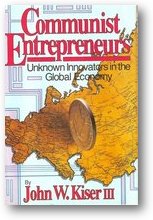|
The Good Jihadist
“On February 5, 1848, a short, stocky forty-one-year-old general of the French Army of Africa took the podium before the Chamber of Deputies in Paris to defend his actions. Less than two months earlier, he had taken into his custody the man who had been France’s most elusive and dangerous enemy for fifteen years: The Commander of the Faithful, Emir Abd el-Kader. Despite the astonishing military accomplishment his surrender represented, the terms of the emir’s capitulation had produced a storm of indignation and criticism in Paris.”
Buy Now at Amazon
Visit book site
 The Monks of Tibhirine (St. Martin’s Press) The Monks of Tibhirine (St. Martin’s Press)
Christians Who Give Their Lives for Muslims
“The normally reserved Duval angrily berated the abbot general for abandoning the church in Algeria, which had just suffered a massive hemorrhage. ‘The monastery is very important to us. It is our only mission devoted to contemplation. Muslims attach great importance to prayer. The Koran singles out monks as especially worthy of respect and their presence increases the prestige of our Church in their eyes. It is equally important for Christians to have a place of retreat for contemplation, prayer, and rejuvenation. Our community is already demoralized and embattled. Please reconsider.”
Buy Now at Amazon
Visit book site
 Religion, Terror, and Error (Praeger) Religion, Terror, and Error (Praeger)
Co-written with Doug Johnston
“I am especially thankful to John Kiser for his important, thoughtful, and often original contributions, which are reflected across the first two chapters and several toward the end dealing with organic suasion, the paradigm, and spiritual engagement. The book particularly benefited from John's uncanny aptitude for linking the spiritual and the mundane and for connecting dots that might prove elusive to others. Finally, his familiarity with Robert Coram's biography of John Boyd led to a framework that accommodated both the practical and more philosophical components of the contents. John's substantive and literary contributions to this effort were significant indeed.”
From the acknowledgement by Doug Johnston, President of the International Center for Religion and Diplomacy.
Buy Now at Amazon
 Stefan Zweig (Appelton Press) Stefan Zweig (Appelton Press)
Success and Suicide
“Biography is a form of autobiography. Subjects who repel may reveal more about an author than ones that attract. Joseph Fouché and Honoré de Balzac were part of the yin and yang of Zweig’s character. Struggling for equilibrium between the opposing forces of pessimism and optimism, Zweig’s makeup could have used more parts of Balzac and fewer parts Fouché...”
“No floater in the thin air of intellectual brotherhood, for Balzac, society presented an ongoing, dirty war for power, wealth, and position; human nature was ‘red tooth and claw.’ He believed that only the strict moral authority of the Catholic church and iron political discipline could stem the greedfest of bourgeois society, the disorder of push and shove that he witnessed.”
Buy now at Abe Books
 Communist Entrepeneurs (Watts) Communist Entrepeneurs (Watts)
Maverick Innovators within the Evil Empire
“‘He’s an innovator who does not follow orders. He does things his own way,’ says Sergei Rogov, of the USA and Canada Institute in Moscow, who has studied Kabaidze’s career. Beginning with contravening the plan for the new Ivanovo plant he was chosen to direct in 1970, Kabaidze systematically ignored the nostrums of the planning system...”
“Kabaidze’s respect for youth is more than a matter of a person’s years. Young people can be old, and old people can be young. Youthfulness is an attitude—an attitude of innocence, enthusiasm, and not knowing what can’t be done. Nostalgia for ‘the way it was’ is a sure sign of mental aging and, at Ivanovo, unfitness for responsibility.”
Buy Now at Amazon

|